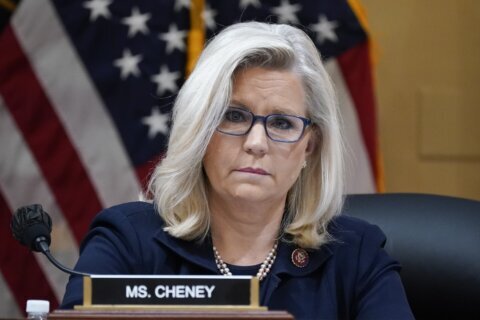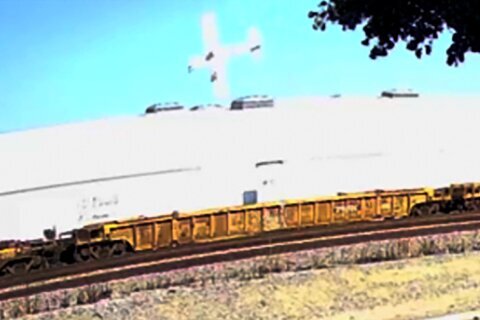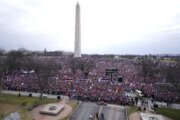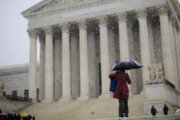NAVAJO NATION (AP) — Emptiness paints the vast ranges and rugged mountains of 22 Native reservations speckling Arizona, sculpting daily life, culture and even politics in nearly a quarter of the state.
Reservations brim with culture as many carry on their ancestral traditions. Yet few opportunities, high rates of poverty, little investment by both tribal and federal governments, and limited access to water, electricity and education have left many reservations like the northern Navajo Nation frozen in time.
It’s fueled an emigration from Native lands, as young people study in boarding schools off the reservations and leave in soaring numbers to seek jobs in bigger cities. Among them is 20-year-old Tatum Grey who plans to leave her home in Chinle, Arizona in search of work.
“There’s no programs for the youth to get a job anywhere. You talk to restaurants, business and they all turn you down quick, so you have to look out in cities, and that destroys the Navajo Nation’s economy,” she said. “All people want is a nice life.”
It’s a phenomenon that touches the lives of nearly every Navajo. Every family has a member who has left. Young people dream of opportunities. And the elderly are often left alone with few to care for them.
Those long distances and rugged terrains are the same ones that have sculpted political campaigns in the 2024 election. As both Democratic and Republican parties try to scoop up any and every vote in the far reaches of Arizona, a swing state, organizers have had to be creative in their campaigning on Native lands.
Posters for both candidates Democrat Kamala Harris and Republican Donald Trump dot rubble roads, often written in Navajo or drawn by hand. In homes that lack basic cellphone signals and even electricity, campaigns have pumped money into radio ads, seeking to reach voters on the furthest fringes of society.
Instead of hosting big rallies, voting activists travel to the far reaches of the reservation, paying the entrance fees to local events like goat roping in exchange for young Navajos registering to vote. Others have ridden across the reservation on horseback to excite voters disillusioned by politics, another push to overcome the distances and historic barriers that have long permeated the reservation.
Copyright © 2025 The Associated Press. All rights reserved. This material may not be published, broadcast, written or redistributed.







